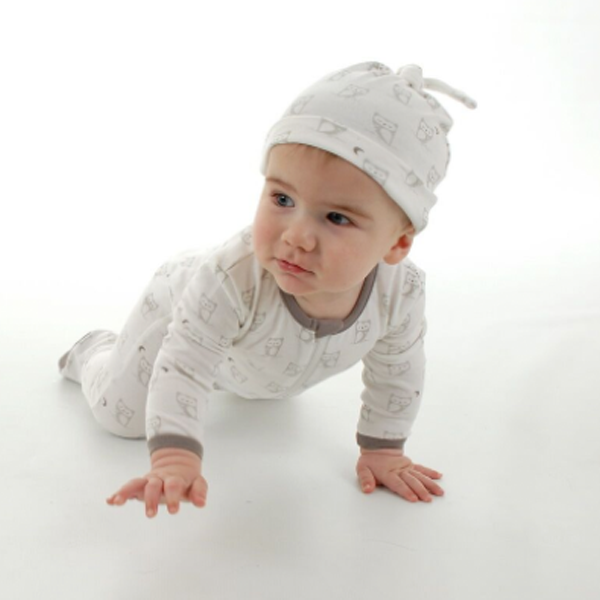
What Is Certified Organic Cotton and Why It’s Important for Your Family
 As consumers, we sometimes take for granted the process that goes into creating many of the everyday items that we have in our households. Whether you are a new parent or you have a house full of little ones, you’ve no doubt taken more of an interest in the safety of everyday household items for children. When measured in hours per day, the product that arguably touches your baby’s tender, developing skin more than any other is her clothes! But clothes don’t contain unsafe chemicals, do they?
As consumers, we sometimes take for granted the process that goes into creating many of the everyday items that we have in our households. Whether you are a new parent or you have a house full of little ones, you’ve no doubt taken more of an interest in the safety of everyday household items for children. When measured in hours per day, the product that arguably touches your baby’s tender, developing skin more than any other is her clothes! But clothes don’t contain unsafe chemicals, do they?
Unfortunately, the cotton that makes up a lot of the clothing that Americans wear is treated with insecticides that contain dangerous, and even cancer causing chemicals (all are classified as either category I or II by the EPA, the most dangerous chemicals known). In fact, of all insecticides used globally, anywhere from 16-25% is applied directly to cotton—this is more than any other single crop. The excessive use of chemicals in standard cotton production, as with many other cash crops around the world, has led to a devastating environmental pollution.
From these alarming facts, it isn’t hard to see why we at Silkberry Baby choose to use organic cotton and other eco-friendly and sustainable fabrics for the clothing that comes in such direct contact with your baby’s developing skin.
What is Different About Organic Cotton?
In short, organic cotton is grown without the use of toxic pesticides and insecticides that regular cotton is practically bathed in. It also doesn’t undergo the application of synthetic fertilizers to stimulate the growth process. Instead, organic systems of production are utilized to maintain fertile soil.
Federal regulations also prohibit the use of genetically engineered seeds in organic farming. These strict regulations mean that all cotton sold as organic in the U.S. must meet certain preset standards. This is not only good for the environment, but means that your baby isn’t being exposed to the potentially harmful and allergy-causing effects of cotton that is not certified organic.
Who Controls Organic Production Standards for Fabric?
Third-party certification organizations are tasked with ensuring that organic producers use only methods and materials outlined by federal regulations. Thankfully, some producers of clothing for children commit to only utilizing fabrics in their clothing lines that are certified by these organizations. For example, Silkberry Baby only utilizes organic cotton fiber that meets the Global Organic Textile Standard (GOTS). Also, the rayon from bamboo used is Oeko-Tex 100 and Organic Crop Improvement Association International (OCIA) certified.
The use of harmful chemicals in the production of clothing is yet another issue to add to the list of harmful things to keep out of your household, but thankfully there are companies out there taking care to make sure your little ones have only the best materials for their developing and sensitive skin.
 Written by Carrie Shan, Founder of Silkberry Baby
Written by Carrie Shan, Founder of Silkberry Baby
Silkberry Baby is an organic baby clothing brand located in Vancouver, British Columbia, Canada. Developed by Carrie Shan, a mother of two young children, the range was conceived to create a baby bedding and clothing product range as her daughter had an allergic reaction to synthetic fibres. After much research, she sourced natural, eco-friendly and sustainable fibers (mulberry silk floss and bamboo) that she found to be the best natural choices available for baby and toddlers' bedding and clothing.
All data and information provided on this site is for informational purposes only. Silkberry Baby makes no representations as to accuracy, completeness, current-ness, suitability, or validity of any information on this site and will not be liable for any errors, omissions, or delays in this information, or any losses, injuries, or damages arising from its display or use. All information is provided on an as-is basis.
